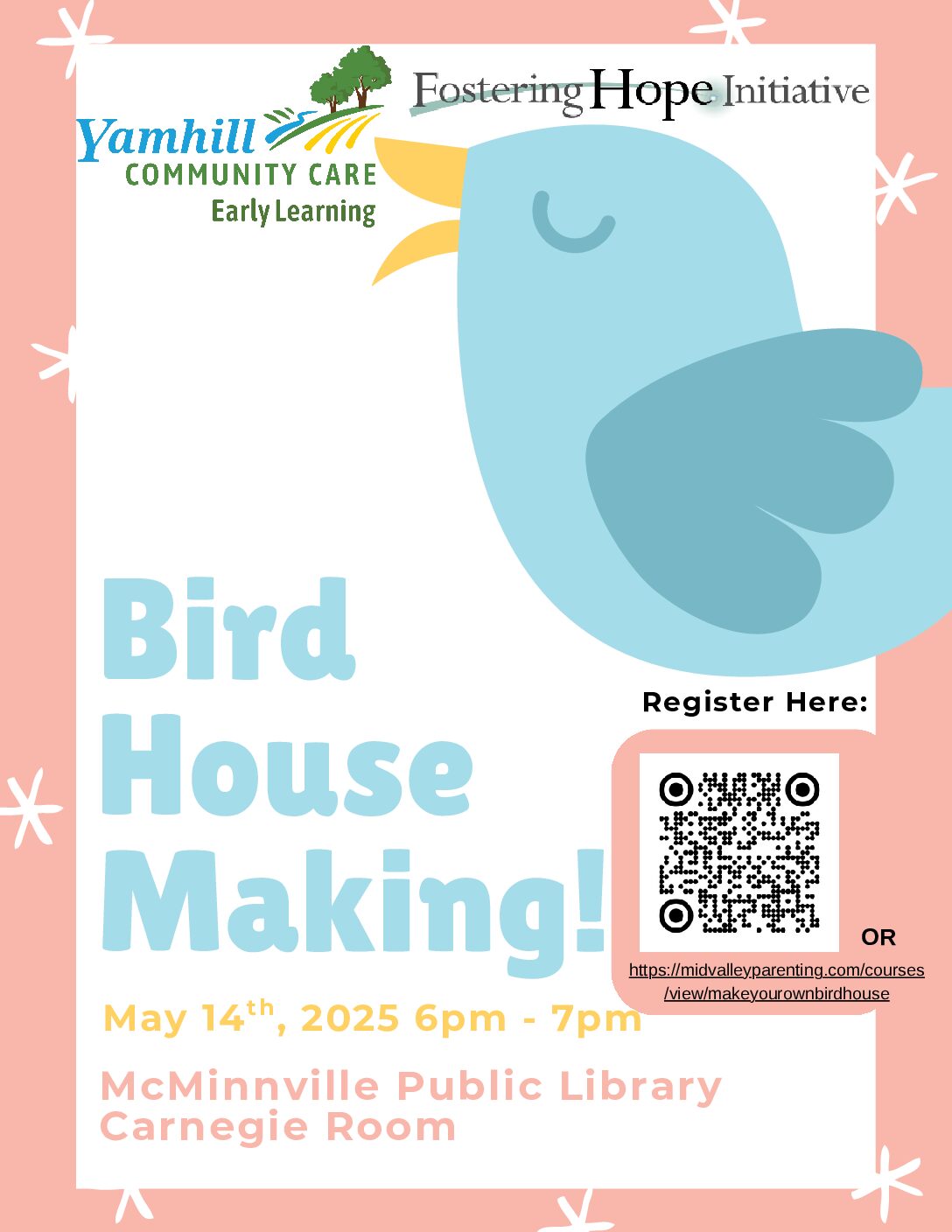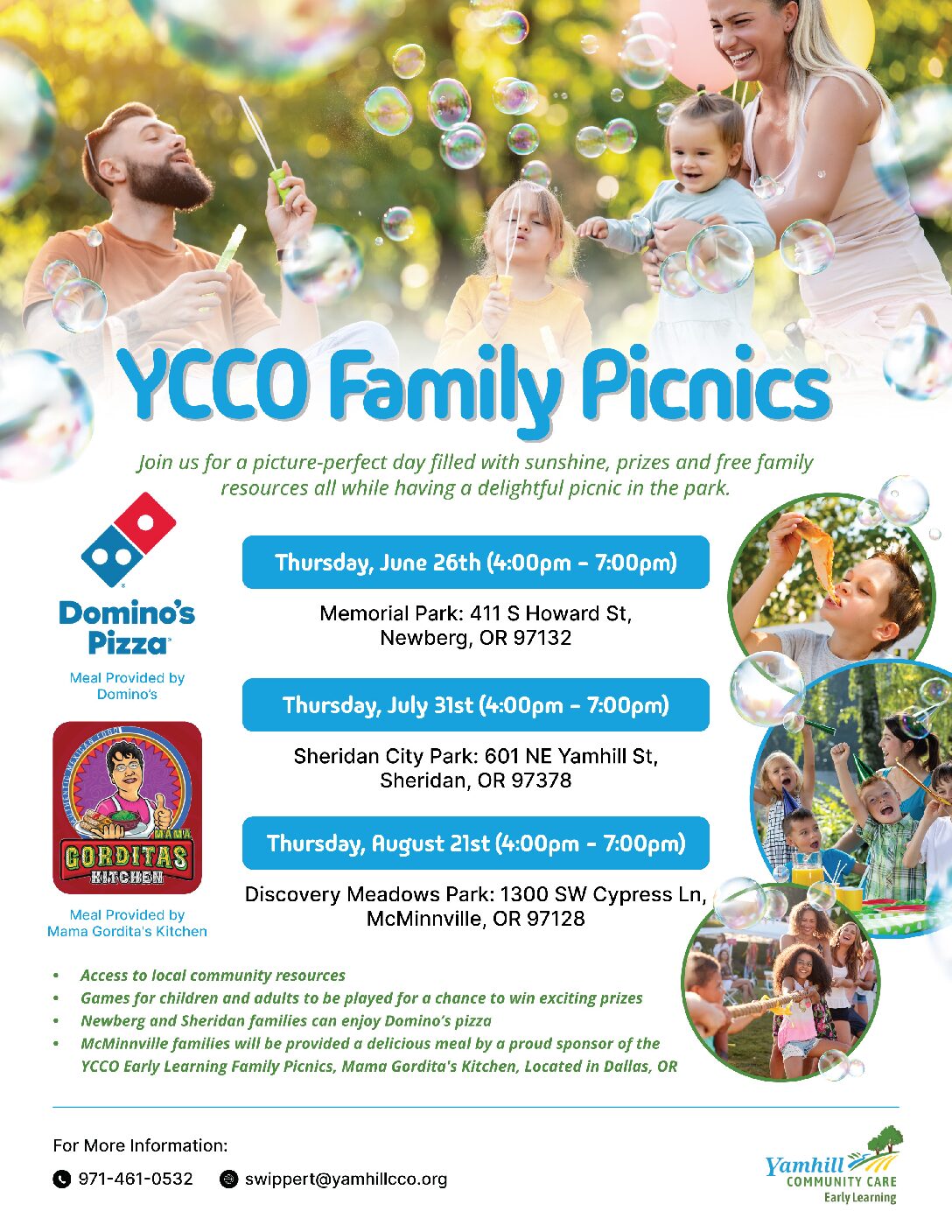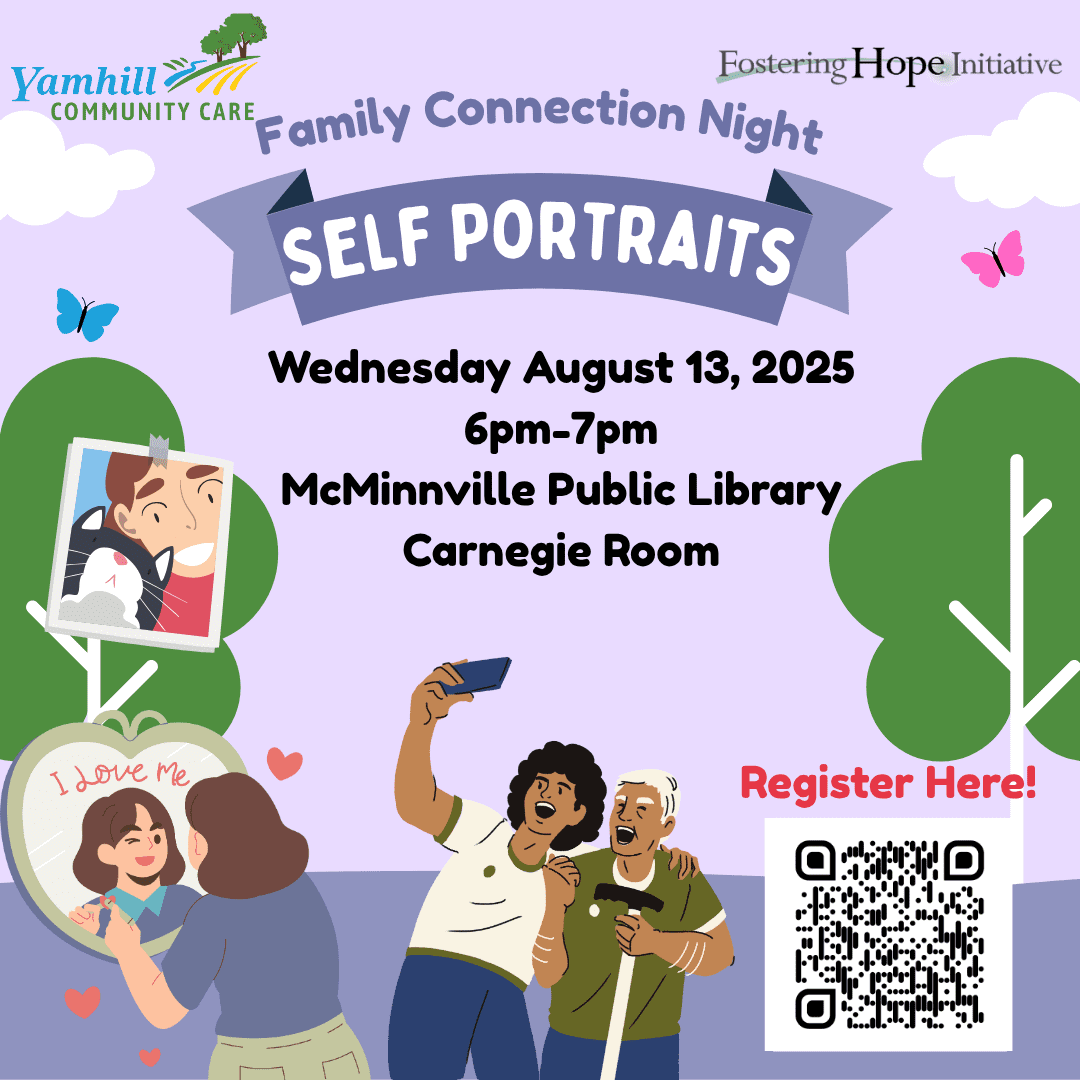
DIY Windchime Crafting
McMinnville Public Library 225 NW Adams St, McMinnville, OR, United StatesLet’s work WITH this April weather instead of against it. Working together is something beautiful, so let’s make some wind music with windchimes.
Find the Yamhill Early Learning Hub and the Fostering Hope Initiative in the Carnegie Room of the Library every 2nd Wednesday for a new way to connect with yourself, your kids, and other families.
See you from 6pm – 7pm on Wednesday, April 9th!
Trabajemos CON este clima de abril en lugar de contra él. Trabajar juntos es algo hermoso, así que hagamos música de viento con campanillas.
Encuentra el Centro de Aprendizaje Temprano Yamhill y la Iniciativa Fostering Hope en la Sala Carnegie de la Biblioteca cada segundo miércoles para una nueva forma de conectar contigo mismo, con tus hijos y con otras familias.
¡Nos vemos de 6pm – 7pm el miércoles 9 de abril!
Folleto español:
 All Events
All Events  Prenatal
Prenatal  Infant
Infant  Toddler
Toddler  Pre-K
Pre-K 




